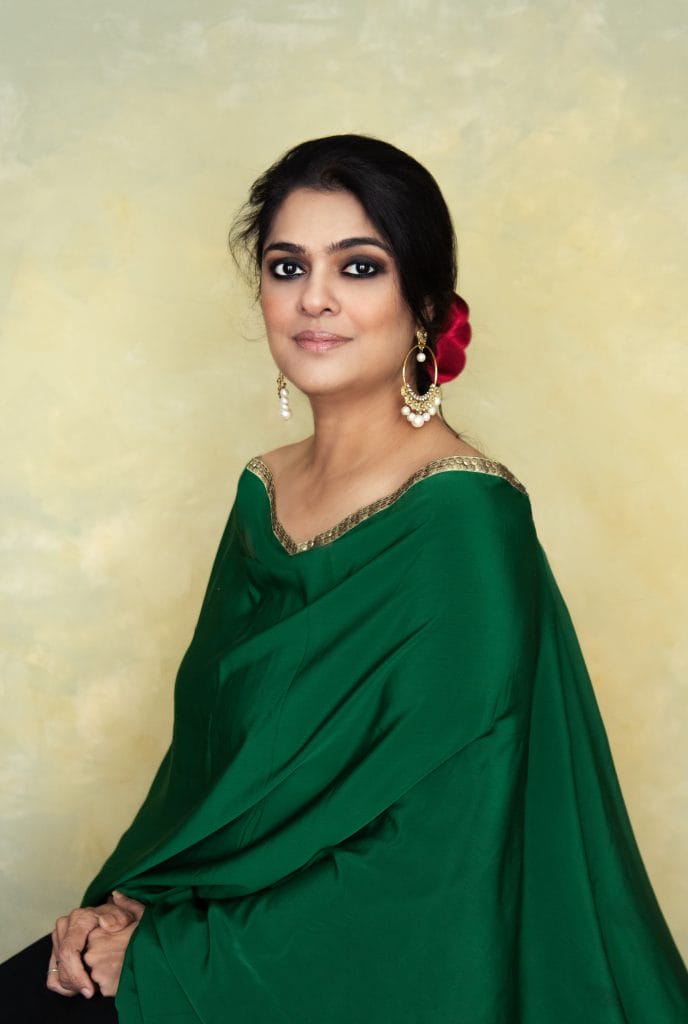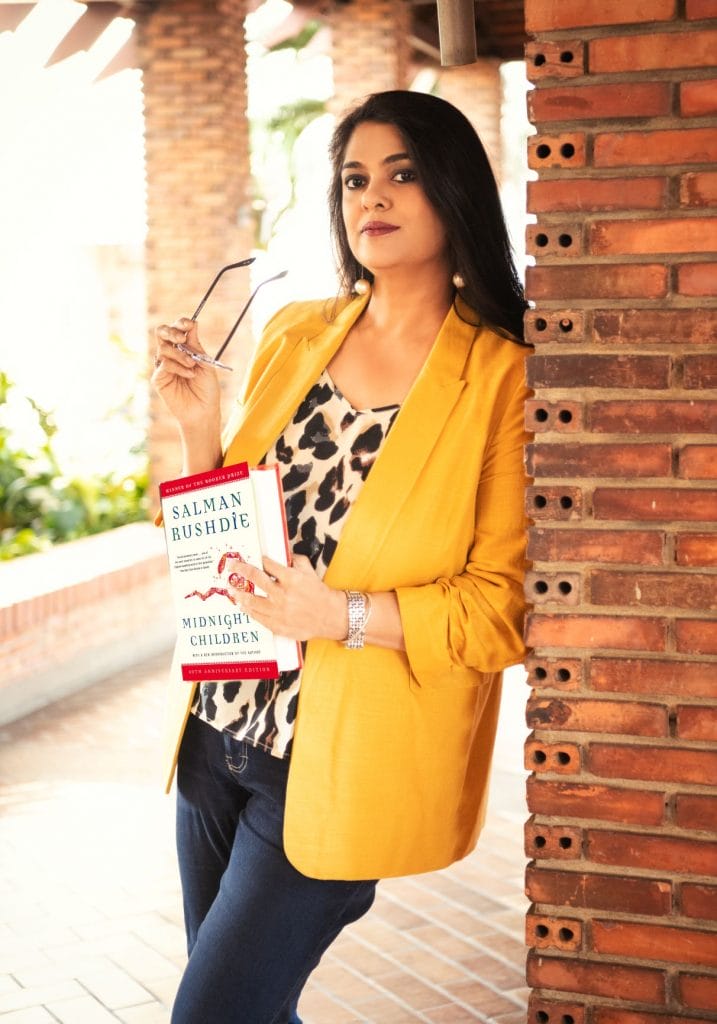Forging ahead of the trail.
By Shradha Aswani
When Dr. Manisha Bose moved to Thailand, she was accompanying her husband, who had then found employment in the country, with a one-year-old by her side. Today, after almost two decades, she is a proud mother of two, a respected teacher at Assumption University, a successful corporate trainer, a volunteer with a children’s home called Baanunrak , and the Chapter Head, Thailand of #WomanPower, a global movement that celebrates womanhood in 23 countries across the world. What started as a journey of
a trailing spouse in a new country, alienated by language is now an inspiration to many.
Sharing similarities to my expat experience in Bangkok, Manisha seems to be an embodiment of the global movement she represents, as she invites me into her ethnic household, packed into a not-so-busy soi in Ekkamai. We sit down to discuss the many facets of her being a woman, amid home-made poha and sandwiches that she generously serves.
“My first and foremost identity is that of a homemaker and a mother,” she candidly tells me, “and my aim has always been to have a balanced life. Prioritising my role as a mother has served me well, because the relationshipI have built with my children is what fuels me today. I learn a lot from my daughter. Be it through differing political views or her discouraging the age-old conditioning I am now trying to fight; her opinions help me grow and I feel glad about having put my children over everything else. When I look back at why this is important to me, I trace it back to my sister and me being raised by a mother who was always there for us. I think that is what has made me who I am at present.”
“When my husband was moving to this country, a lot of people told me that the language barrier here will not be conducive to a successful career for me. Within a few months, I found a corporate training gig that helped me penetrate the market here, but then when I saw that my one-year-old daughter was getting affected by my commitments, I decided to pursue my PhD instead, since that allowed me the room to manage both aspects of my life. I had always dreamt of being a young PhD-holder, and my sole focus for my firrst few years here was my research. Going through with it has been one of the most spiritual experiences of my life.”
I enquire about the next leg of her journey, and she responds, while urging me to start eating. “I had my
son once I finished my PhD and was soon discovered by Chulalongkorn University. The then-Vice-President
awarded me with the title of Bharatha Medhi (an Indian scholar), and my thesis and ideas were warmly welcomed there. That also set the ground for my teaching stint, and I started teaching with Assumption University, which has been my anchor ever since.”
Speaking of anchors, she tells me about the other passion that has been keeping her on her feet ever since she has been here. “For the past 20 years, I have been volunteering with Baanunrak, a children’s home located at the Myanmar-Thailand border. I am a middle-class working woman, who doesn’t have a lot of money to offer to the charity, but my intention to help them has led me to accumulate a lot of help from all my surroundings. Though I am not a social person by nature, still, every time there has been a need, I have been able to find the resources necessary from the people around, most of whom I have found generous and ready to give. If there is one lesson that I have learnt over these years, it is that your intention matters much more than your capability. My ideas have been able to help the charity much more than my money ever could.”
“Even if just two women talk about how they built their careers over time, in the quarterly meetings that I plan to arrange, it will give many the inspiration to pull up their socks. “Thailand has a big pool of expat women, not just from India or the subcontinent, but from the world over, with impeccable talent. Women who are yearning to do something meaningful, but don’t know how. If we bridge the gap between the opportunities available and what they have to offer, not only will it help these women realise their potential,
but also give the country more access to a workforce of immense calibre.
“Women power is not about disempowering the man. It is, in fact, letting them in as a part of the change. Because we can’t make the change without men being a part of it. That is where men like Mr. DK Bakshi come into the picture, who wear the title of ‘Honourable Woman’ with pride.”
Dr. Manisha’s energy as she speaks of the cause is reflective of how deeply she believes in what she is doing. I conclude by asking her if she has a message to give out to men and women, and she begins her answer with
a smile. “To women, I would like to say, recognise your own abilities. Recognise your strength, which is inside-out. It is not outside-in. It doesn’t come from society or family. It comes from you. If you don’t do the best for you, you won’t be able to do the best for anybody else. To the men, I would like to tell them to help in building stronger women. They will add to your strength so that you are more powerful.
We need to change the narratives we live with, where people feel proud in raising their daughters as sons. We need to raise daughters as daughters, not as sons, because they are enough, as they are.”








